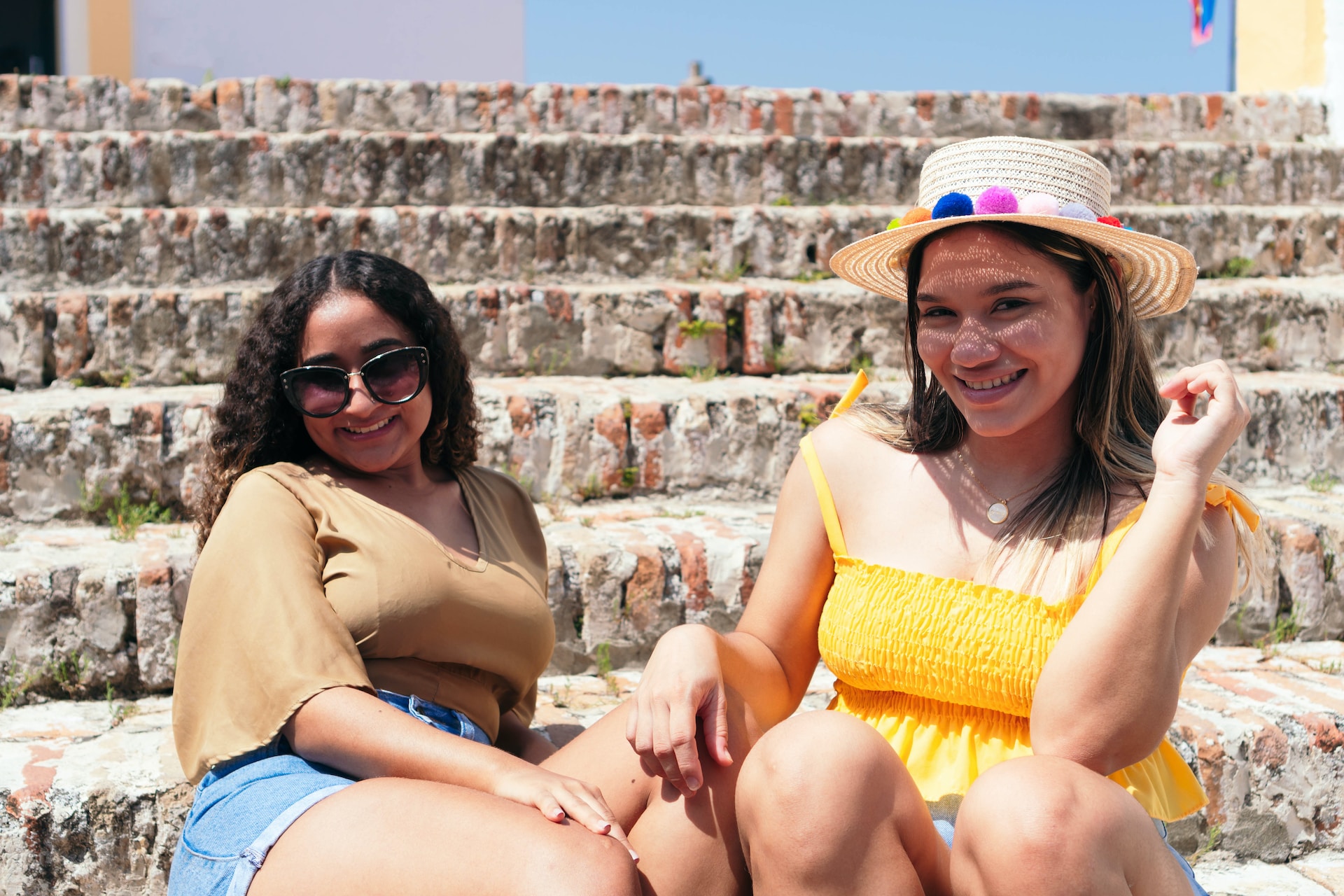Finding Your Latiné Community in College

By Priscilla Blossom
One of the best ways to make the transition from high school to college easier is to find community right away. But as young Latinés, it’s not always easy to do this. You might find that your roommates and classmates grew up in a very different culture than your own. This is especially true if you grew up in another country, in a mostly Latiné neighborhood, or if English isn’t your primary language.
There are other factors, too, like whether you’re the first in your family to go to college, or if you’re paying your own way through school. If that’s the case, you might have difficulty relating to students whose families started their college funds when they were babies, or around classmates who are legacies (people who have family members who’ve attended the same university). And if you don’t have any family or close friends nearby, you might even start to feel a bit lonely, or worse.
The good news is that there are lots of ways to find community—not only on campus but also even before you begin school. It just takes a little effort, but it’s worth it to find like-minded Latiné and students of color and others who can better understand your experience at school. Here are a few ways you can find community when you go off to college.
Start Your Community Search via Social Media
One of the easiest ways to start your search for community is via social media. Some schools, like Rutgers and Humboldt State universities, have various groups to join on Discord. Here, current and prospective students can connect and find out about navigating college life, campus events, meeting other students, and more.
Look for the official pages for your university on Instagram, TikTok, and Facebook, and follow them to stay aware of activities, events, news, and more at your school.
Many colleges also have specific accounts for Hispanic, Latiné, and other BIPOC resource centers, organizations, and clubs. You can follow these pages before you get to campus, attend online events like Instagram Lives, and connect with other students in the comments.
UCLA’s Dream Resource Center, for example, is geared toward immigrant youth and has an Instagram account where they post opportunities for undocumented immigrant youth. The Organization of Latino American Students at La Salle University also has a Facebook account, and they even created a new TikTok account earlier this year.
Some students and organizations also use chat-based apps like WhatsApp, GroupMe, and Slack to connect with one another. Don’t be afraid to reach out to people whose profiles mention they’re also incoming Latiné first-year students. They might be looking for new friends, roommates, and community, as well. Instead of going it alone, you can start your college experience with new friends right off the bat.
Sign Up for Bridge Programs
Check your college’s website to see whether they offer any pre-college, or “bridge,” programs. These programs offer support for incoming students, often from underrepresented backgrounds, including Latiné students.
Northwestern University’s Weinberg College of Arts & Sciences, for example, hosts a free bridge program one month before the fall semester, during which students take a few half-credit classes while also participating in social events to begin finding their campus community. They sometimes help pay for transportation for students who live farther than three hours away.
The University of Colorado Boulder also offers a summer bridge program for incoming students that includes free tuition, a $1,000 stipend, the chance to earn an additional scholarship, and plenty of socializing.
Look for Latiné-Focused Groups on Campus
You might have already started seeking Latiné- and BIPOC-focused college groups, clubs, and organizations online, but you’ll want to find resource centers and in-person events and activities once you’re finally on campus.
Club fairs are a great way to find out more about on-campus groups you can join to find people with similar interests and backgrounds. MEChA (Movimiento Estudiantil Chicanx de Aztlán), for example, is a nationwide group with a chapter at California State University Channel Islands that hosts regular meetings for Chicanx and other Latiné/Hispanic students.
And if you’re interested in Greek life, Arizona State University has a list of Latiné fraternities and sororities to join (like Gamma Alpha Omega and Gamma Zeta Alpha), where you’ll have a great opportunity to make lifelong friends.
Look for Support Staff on Campus
Some campuses have offices like the Office of Multicultural Affairs at Fordham University, or centers that are focused on supporting Latiné/Hispanic students on campus such as the Latinx Center at Tufts University. Most of these centers have dedicated full-time or part-time staff members whose role is to provide resources and support for students.
Check Out Community Spaces Near Campus
And finally, campus isn’t the only place you can find community. If you’re going to school in a new city, for example, you might be able to find Latiné and other BIPOC spaces where you can make new friends.
Spend time at cultural centers like the Museum of Latin American Art, in Long Beach, California, or the Dominican-owned Stuart Cinema & Cafe, in New York City. Seek out nonprofit organizations like Mijente, based in Phoenix, where you can meet people with similar values and culture while giving back to the community.
Join a local sports rec league or other movement activity for Latinés, like Latino Outdoors. This organization hosts outdoor activities of all kinds, with locations from Seattle to Miami and dozens of towns in between.
Or try eating at BIPOC-owned restaurants and cafes near campus where you might run into diverse people in the community—you never know who you’ll meet the next time you pick up some empanadas or a cafe con leché before class!







